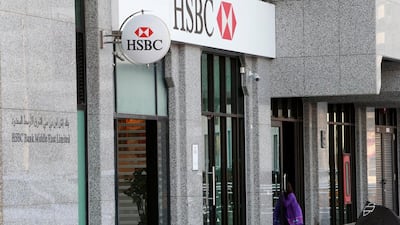Turnaround specialists have warned that regional companies face a looming cash-flow crisis as banks pull back from lending amid US$30 oil.
Lenders are reporting a sharp rise in non-performing loans that started among smaller companies and is extending to larger corporates as firms seek to conserve cash and governments face funding pressures because of the weak oil price.
“When banks ask companies to repay their short-term debt and companies aren’t able to find additional funding, this will be the moment where some sort of crisis will happen,” said Eugenio Berenga, the managing director of AlixPartners in Dubai. “The larger ones are already thinking about which costs they can reduce and work from a lower cost base. This is already happening quietly.”
Gulf governments are cutting spending after the oil price plunged 70 per cent over the last 18 months. The drop has sent regional stock markets tumbling while many companies have cut staff or trimmed benefits.
Banks are retreating from lending to small businesses as they come under pressure to conserve cash and protect themselves from customer defaults. Some, including RAKBank, HSBC and Standard Chartered, have shed jobs in anticipation of lower growth.
Regional stock markets are also being battered by the weak oil price with shares in Dubai and Abu Dhabi off about 2.9 per cent and 3.8 per cent respectively since the start of the year.
But it is Saudi Arabia that has seen the biggest declines with the Tadawul declining 13.5 per cent for the year to date to figure among the world’s worst performing markets.
The slowdown in Saudi Arabia has had a particularly big effect on the construction and industrial sectors as banks reduce lending amid tightening liquidity.
“We met several banks in Saudi who were a little bit concerned because they won’t be able to keep on extending and increasing credit lines for industrial companies,” said Mr Berenga.
“This was the norm during the last three years when companies were borrowing short-term debt to repay longer-term debt.”
Simon Freakley, the global chief executive of AlixPartners and former boss of Kroll, the global corporate investigation company, says that the perception of risk in the region has also changed since the 2008 financial crisis.
“What is different to the financial crisis is the region is seen to be riskier from a geopolitical point of view because of what is happening with ISIL and what have you,” he said in Dubai.
“Attracting money to the region from outside the region is much more difficult than it was because of this perception of risk. So you have the double jeopardy of the low oil price not generating the revenues locally, and the difficulty in attracting foreign direct investment as people assess the stability of the region. So I think it is quite a challenging time.”
The need to conserve cash is becoming a priority for corporations across the region, according to Bharat Gupta, a senior director of the turnaround consultancy Alvarez & Marsal Middle East.
“The low oil price is having a cascading effect down the value chain. It has already had a significant effect on the profitability and liquidity of sectors like construction, oilfield services and shipping across the region,” Mr Gupta said.
“Consumer sentiment has dropped and we’ve seen the effect of that on lower retail sales and reduced margins for distributors. These types of businesses will continue to face both revenue growth and liquidity challenges. Aligning cost structure to lower revenues and being smarter with liquidity management is critical.”
scronin@thenational.ae
Follow The National's Business section on Twitter

